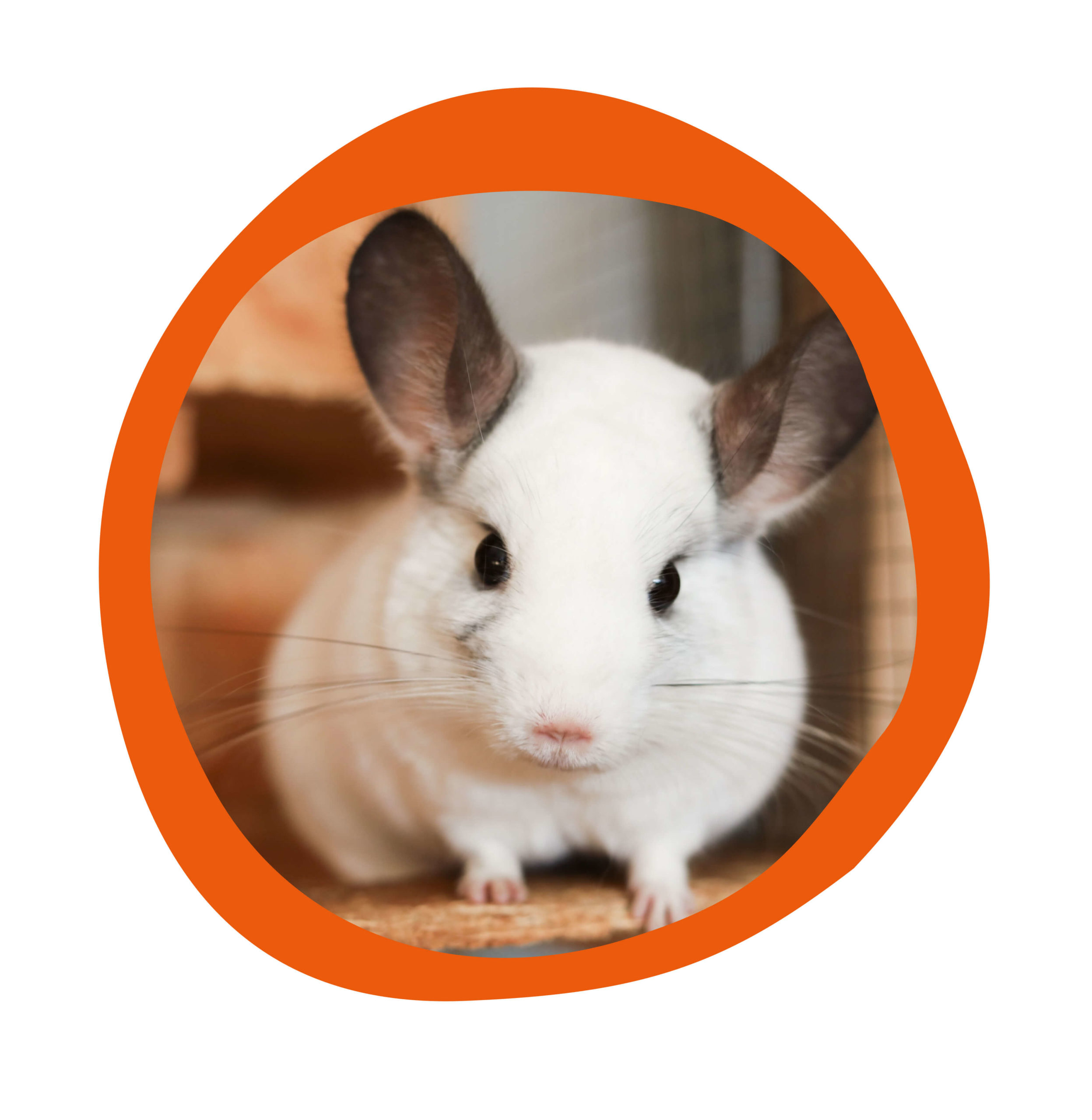Pet chinchillas can be fun, exciting, and entertaining to own. But did you know they have their unique healthcare needs you have to consider when you own one? Chinchillas require the assistance of a chinchilla vet to keep them healthy, happy, and well for as long as possible. Paws and Claws Medical Center is your trusted chinchilla vet in Miami, FL and we are dedicated to keeping all pets happy and healthy.
Below, we’ll walk you through the types of chinchilla vet care you can expect as well as some of the most common reasons to see a chinchilla vet. You can then use this information to figure out how you can improve the care of your exotic furry friend.
Most Common Chinchilla Pets
Chinchillas come in a few different varieties, many of which are commonly found as pets. These different types of chinchillas may have slightly different health care and grooming needs, but for the most part, they are all basically the same in terms of veterinary care.
The most common types of chinchillas found as pets include long-haired and short-haired chinchillas. One of the most common colors is known as standard gray, while other common colors include beige, black, and white. Chinchillas may also be found in designer colors known as violet, sapphire, and chocolate, but they are not quite as common as the others.

Types of Chinchilla Vet Care
As with any other pet, chinchillas require a certain level of veterinary care that pet owners alone can’t provide. Below are some of the common types of chinchilla care we offer pet owners.
Acute Illness or Injury
Chinchillas may suffer sudden, unexpected illness or injury. This is one of the primary purposes of a chinchilla vet and one of the most important reasons why a strong relationship with your vet is crucial.
Dental Exams
Chinchillas require frequent dental checkups to ensure their teeth and gums remain healthy. Because their teeth are so important to them, any dental problems can quickly cause more serious issues for a chinchilla. We will be able to provide exams, cleanings, treatment, and more if needed.
Grooming
Although you should be able to perform basic grooming for your chinchilla at home, you can always take your pet to the vet for more in-depth grooming as needed. For example, intact male chinchillas may need hair rings removed from their genitals, and all chinchillas may need ear cleanings and nail trimmings.
Coat and Skin Exams
It’s important for your chinchilla to maintain a healthy coat and skin. We will be able to check for signs of abscesses under the fur as well as ringworm and other infections common in chinchillas. We can also prescribe treatment options for these issues.
Neutering
Male chinchillas can benefit from being neutered if you don’t have the intention of breeding them. They will run fewer overall health risks this way, and they also won’t become as aggressive as intact males might. Additionally, you can house a neutered male chinchilla with an intact female chinchilla with no issues.
Reasons to See a Chinchilla Vet
Don’t hesitate to call us or schedule an appointment online if you’re unsure about the health of your chinchilla. As a reference, here are some of the more common reasons why people bring their chinchillas to us for vet care.
Overheating: Chinchillas may overheat very easily because of their thick fur coats. They should always be kept in an indoor enclosure, preferably in a room with strong air conditioning. Chinchillas cannot survive overheating for very long, so if your pet has overheated, take them to the vet immediately for assistance.
Eye treatment: Chinchillas may develop infections or injuries in their eyes frequently because of the presence of dust in their environments. A chinchilla with an eye issue will squint, tear up easily, or have redness of the eye. As your chinchilla vet in Miami, FL, we will be able to help diagnose and treat these problems in your pet.
Respiratory treatment: Although chinchillas are not as prone to respiratory disease as some other exotic pets, they still may come down with pneumonia due to bacteria in their environments. Chinchillas that are kept in dirty cages for too long, for example, may run the risk of developing pneumonia. These animals will require veterinary treatment and care.
Fur loss: Fur loss may be a sign of aggressive cage mates, or it could be a symptom of any number of skin conditions. Significant fur loss should be examined by a chinchilla vet to rule out any potential serious causes.
Wet chin fur: This is a sign that your chinchilla may be drooling, which is symptomatic of dental disease. If you notice your chinchilla is wet under her chin and you know they didn’t just finished drinking water, then you should take them to the vet.
